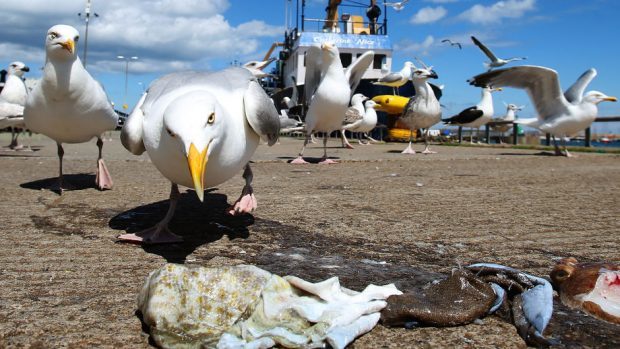Feasting on junk food stolen from unsuspecting Aberdonians may be making gulls increasingly aggressive, according to an academic researching the “misunderstood” birds.
Rebecca Lakin, a PhD student at St Andrews University, is looking into the impact of urban environments on young gulls across the city.
And she hopes her study into the effect of unhealthy food on gulls may change our perception of the infamous local bird.
Miss Lakin, 24, will compare the chips and ice cream diet of urban gulls to the traditional marine menu of fish and clams of their island cousins.
Her research will explore how the food they digest may impact them later in life.
The results from the project will give further insight into why Aberdeen’s gulls can be so aggressive.
She will be focusing on herring gulls and the lesser black-backed variety, which she describes as “misunderstood.”
She said: “They’re well known for stealing people’s food and they’re noisy and smelly.
“Day to day people just don’t have a good relationship with them. One of the reasons they are able to take advantage of good nest sides and human food is because they are quite clever.”
Aggression in city gulls often takes place when parents are defending their chicks, or when young gulls face a shortage of food. Both instances lead to food being stolen or the intimidating ‘swooping’ action of the birds.
Miss Lakin will be splitting her time between Aberdeen and the Isle of May to conduct research for the project, funded by the Natural Environment Research Council in collaboration with the British Trust for Ornithology and The University of St Andrews.
She said: “I’ve worked with gulls in the past so I’ve a strong interest in seabirds. When I saw the project I thought it would be perfect for me. I look forward to what we might find.”
Miss Lakin is documenting her research at www.gullgirl.co.uk
